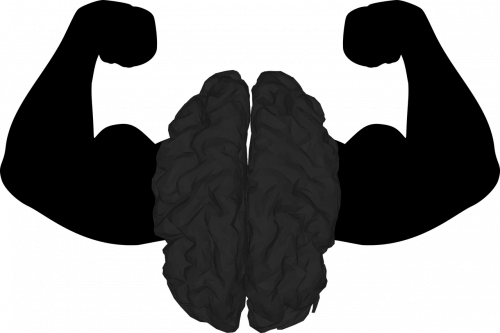
Source: pixabay.com
This year has been a challenging time for our society. The World Health Organization (WHO) declared a global pandemic last March 11. The COVID-19 has been rapidly spreading across 185 countries, with more than 2.2 million cases and counting. It continues to spread, with death toll alarmingly on the rise.
Governments around the world try to “flatten the curve” by implementing extreme procedures to slow down the spread, enough for the current number of cases to be within the capacity of healthcare institutions. For most countries, this means extreme Draconian measures to keep the virus outbreak at bay.
From strict lockdowns, travel bans, forced closure of establishments, the prohibition of mass gatherings, and social distancing— daily routines were forced to change abruptly.
Adapting into this new way of life or the new normal as they say, and the fear of contracting COVID-19 itself can be stressful and lead to anxiety. It can be overwhelming, taking a toll on everyone’s mental health. Sudden disengagement from society can also make coping with this fear and anxiety, especially hard.
With the COVID-19 pandemic negatively impacting numerous facets of our community, it is essential to take steps to ensure the care of your own and your family’s mental health.
COVID-19 Pandemic’s Impact On Your Mental Health

Source: pixabay.com
As people are unique, the pandemic’s effect can significantly vary from one person to another. During this pandemic, your mental health can be considerably affected by stress, anxiety, fear, sadness, and loneliness. “Given the circumstances, feeling anxious is part of a normal response to what’s going on,” Joshua Gordon, M.D., Ph.D., points out.
The impact of the COVID-19 pandemic on mental health can manifest in different ways. It is crucial to keep an eye out for such occurrences in yourself, your family, and even your friends. It can worsen with the uncertainty as to when things will get better, but it is preventable by taking specific measures.
Practices To Improve Mental Health During COVID-19 Pandemic
- Be Careful Of What You Read From The News
Repeatedly hearing negative news about the pandemic can be upsetting. Taking a break or setting a scheduled time to get updates about the situation can be helpful.
- Take Care Of Your Body
Taking steps to take care of your body is vital in attaining good overall health. It is crucial to building the immune system not only to avoid the virus but also to feel good physically. Remember to eat healthily, drink water, and exercise. It is also essential to get enough rest and sleep.

Source: pixabay.com
- Do Leisure Activities
Although the measures imposed by the government will likely prevent most of us from going out and doing our hobbies, it is still essential to unwind and relax. You can explore new ways to entertain yourself or even discover new hobbies and talents. Doing so will help ease some anxiety and help yourself feel good mentally.
- Stay Connected With People
Thanks to technology, connecting with people is now more accessible, even without stepping a foot outside of your home. Staying in touch with friends and family can help you, as well as them, get through these hard times. Sharing how you feel or even seeing that they are doing well can put the mind at ease.
- Set Goals And Priorities
The pandemic can hamper our productivity and ability to concentrate. Tasks typically done may seem insignificant or more tiresome while dealing with issues brought by the pandemic. It is helpful to prioritize and organize what needs to be accomplished immediately, not to get overwhelmed.
Final Thoughts
Indeed, the current global pandemic is challenging. Isolation and social distancing do not mean that you are alone in this fight. Although the steps enumerated above can be done by oneself, seeking professional help or comfort from friends and family can also be an option.
Navigating this uncertainty is hard, but not impossible. It will test our resilience, but we will come out of it more reliable. Taking care of our mental health is not only crucial to our overall health. If we are mentally healthy, we will be able to look out for others as well and even contribute to our communities.
